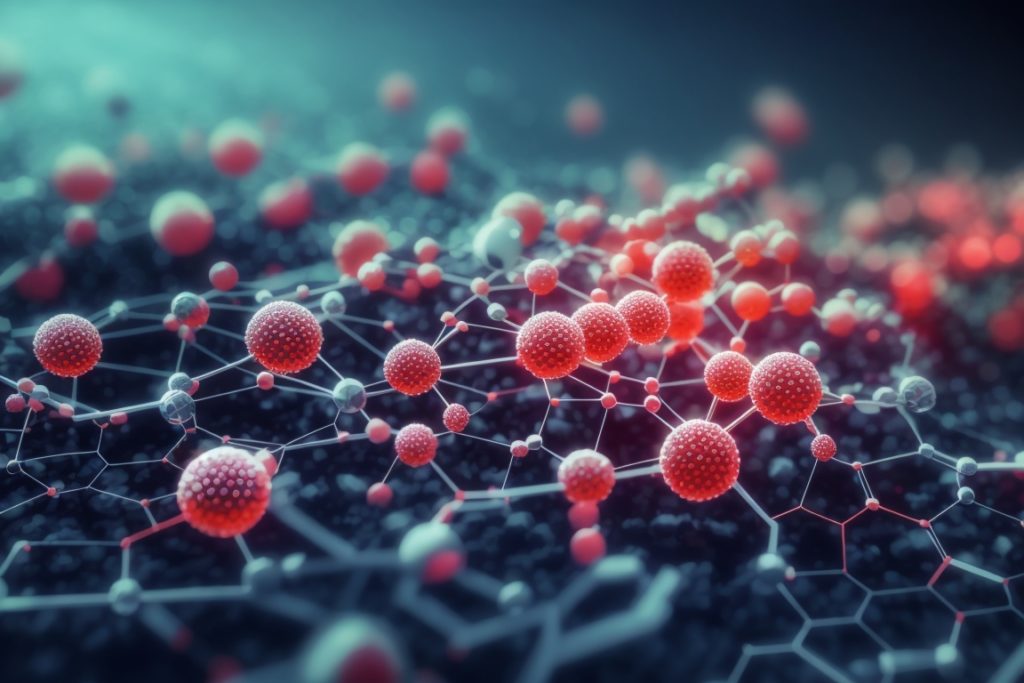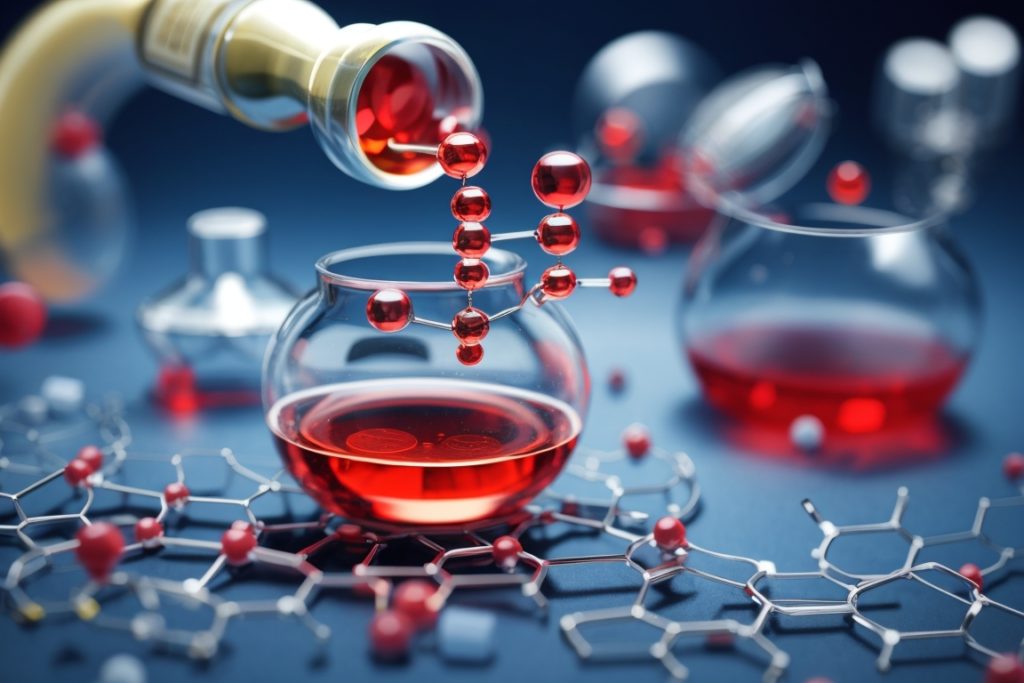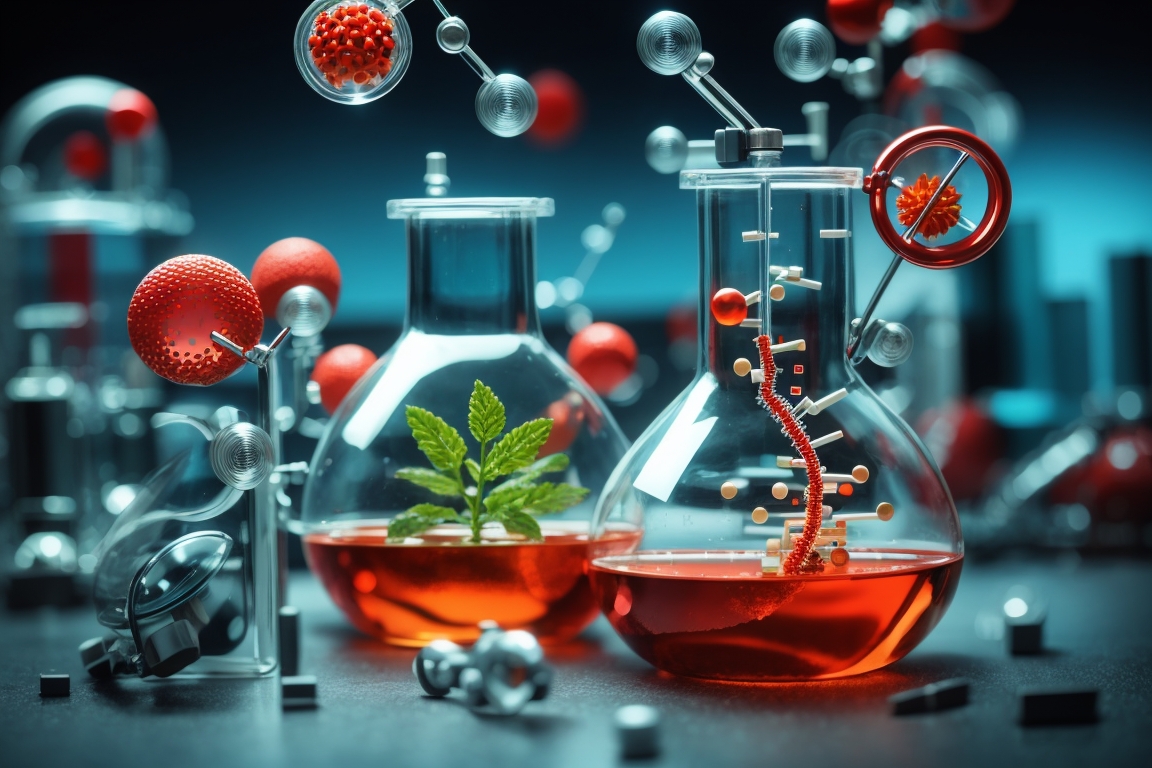Biotechnology has been a driving force in shaping the future of various industries, with its deep-rooted impact on human life, environment, and economic growth. The continuous advancements in this interdisciplinary field hold the potential to revolutionize sectors ranging from healthcare and agriculture to energy and environmental management. A world transformed by the application of biotechnological innovations will notice breakthroughs unparalleled in history, introducing new opportunities and challenges to businesses and mankind as a whole.
One of the key areas where biotechnology is making significant strides is human health. The development of personalized medicine, targeted drug delivery systems, and advanced gene therapy techniques are expected to yield improved treatments for life-threatening diseases, augmenting the overall quality of life for people across the globe. Furthermore, biotechnologies such as molecular diagnostics and next-generation sequencing offer valuable insights into disease prevention and early detection efforts, fostering a proactive healthcare system.
In addition to health, biotechnology plays a vital role in addressing other global challenges such as food security and climate change. The advent of genetically modified crops and advancements in agricultural biotechnology can lead to increased crop yields and resilience against harsh environmental conditions, fostering sustainable and productive farming practices. Simultaneously, advances in biofuels and bioremediation technologies contribute to cleaner energy production and a reduced environmental footprint, promoting a greener future for mankind. As businesses continue to integrate these biotech developments, they will undoubtedly shape the trajectory of human progress across multiple spheres of life.
Fundamentals of Biotechnology
Biotechnology is an interdisciplinary field that involves the manipulation of living organisms or their components to produce useful products. It impacts many sectors, including agriculture, medicine, pharmaceuticals, and fine chemicals production, making it a key enabling technology for sustainable production1.
At its core, biotechnology uses a variety of tools and technologies to work with living cells or their molecules. The main branches of biotechnology are DNA-based, protein-based, and cell-based biotechnology. DNA-based biotechnology involves techniques like gene editing and synthetic biology, while protein-based biotechnology deals with the production of enzymes, antibodies, and other proteins for various applications. Cell-based biotechnology, on the other hand, focuses on stem cell research and tissue engineering2.
One of the most well-known applications of biotechnology is genetic engineering, which enables scientists to modify the genetic material of organisms. By doing so, they can create organisms with desired traits, such as disease resistance or increased productivity3.
In the field of medicine, biotechnology has contributed to the development of novel drugs, vaccines, and diagnostic tests. It also played a crucial role in the advancement of personalized medicine, where treatments are tailored to the unique genetic makeup of individual patients4.
Agriculture has also greatly benefitted from biotechnology. Genetically modified (GM) crops, for instance, have been developed to resist pests, tolerate adverse environmental conditions, and provide better yield5. Moreover, biotechnology has been employed in the production of biofuels and biodegradable plastics, promoting a more sustainable approach to resource utilization6.
Overall, biotechnology has enormous potential to revolutionize various industries and improve the quality of human life. By leveraging the power of living organisms, it continues to unlock new possibilities for a sustainable, healthy, and prosperous future7.
Footnotes
- https://link.springer.com/chapter/10.1007/978-3-030-80108-3_20 ↩
- https://www.ncbi.nlm.nih.gov/pmc/articles/PMC7119977/ ↩
- https://www.nature.com/articles/509026a ↩
- https://www.sciencedirect.com/science/article/pii/S0167779920302135 ↩
- https://www.ncbi.nlm.nih.gov/pmc/articles/PMC3791249/ ↩
- https://pubs.acs.org/doi/full/10.1021/acs.est.1c01054 ↩
- https://www.weforum.org/agenda/2020/01/6-expert-views-on-the-future-of-biotech/ ↩
The Current Scope of Biotechnology
Biotechnology is a rapidly advancing field that encompasses the use of living organisms or their components for various industrial and medical applications. It has been widely recognized as a powerful tool that can significantly impact the future of business and mankind.
At present, biotechnology has a far-reaching influence in several sectors, including agriculture, medicine, and environmental technology. In agriculture, biotech innovations have led to the development of genetically modified crops that are more resistant to pests, diseases, and harsh environmental conditions. This has increased crop yields, reduced the use of harmful pesticides, and has even contributed to combating global food shortages.
In the medical field, biotechnology is responsible for the creation of numerous life-saving drugs and therapies. These include monoclonal antibody-based therapies for cancer, recombinant insulin for diabetes, and the engineering of CAR-T cells for personalized immunotherapy. Additionally, advancements in gene editing technologies, such as CRISPR/Cas9, have opened new doors for treating genetic disorders and diseases.
Environmental applications of biotechnology are also in the spotlight, with several initiatives aimed at reducing pollution, enhancing waste management, and promoting sustainable practices. Examples of this include the use of microbes for bioremediation, biofuels generation from algae, and the development of biodegradable plastics.

While the current scope of biotechnology already has significant implications for human progress, its potential is far from being fully realized. As technology and scientific understanding continue to advance, the possibilities for biotechnology applications seem limitless. Considering its profound impacts on various industries and facets of human life, it is clear that biotechnology will continue to be a driving force in shaping the future of business and mankind.
Biotechnology’s Impact on Industries
Biotechnology in Agriculture
Biotechnology has significantly transformed the agriculture industry by providing innovative solutions to enhance crop productivity and protection. Through genetically engineered crops, farmers can now grow plants that are resistant to pests, diseases, and harsh environmental conditions. Examples include Bt cotton which is resistant to pests and drought-tolerant maize that can withstand water scarcity.
Another application of biotechnology in agriculture is creating crops with enhanced nutritional content, such as rice enriched with Vitamin A, popularly known as Golden Rice. It can help combat malnutrition and vitamin deficiencies in developing countries.
Biotechnology in Pharmaceuticals
The pharmaceutical industry has been revolutionized by the development of novel biotechnology products that target specific diseases and conditions. Examples include monoclonal antibodies, which are highly specific therapeutic agents designed to target particular proteins or cells involved in diseases, and cancer immunotherapies that stimulate the body’s immune system to attack cancer cells. Over 260 novel biotechnology products have been approved for more than 230 indications, significantly improving patient outcomes.
In addition to new treatments, biotechnology also enables the development of personalized medicine, utilizing advancements in genomics, proteomics, and metabolomics to tailor treatments based on an individual’s unique genetic makeup. This approach can lead to more effective therapies with fewer side effects.
Biotechnology in Environmental Conservation
Biotechnology plays a crucial role in preserving the environment and promoting sustainability. For instance, it has led to the development of industrial biotechnology – often referred to as “white biotechnology” – that enables the production of bio-based chemicals and materials. These sustainable alternatives to petroleum-derived products can help reduce pollutants and decrease our dependence on fossil fuels.
Bioremediation, another application of biotechnology, focuses on using microorganisms to clean up environmental pollutants, such as oil spills and toxic waste. By using genetically engineered bacteria or fungi capable of breaking down hazardous substances, bioremediation offers an eco-friendly solution for environmental conservation.
In conclusion, biotechnology has made significant contributions to various industries, such as agriculture, pharmaceuticals, and environmental conservation. As research and innovation in this field continue to progress, biotechnology is expected to have an even more profound impact on these industries and society at large.
Biotechnology’s Impact on Mankind
Impact on Human Health
Biotechnology has significantly advanced the field of medicine, providing new and innovative ways to diagnose, treat, and prevent various diseases. One notable example is the use of recombinant DNA technology, which allows scientists to create genetically modified organisms, such as bacteria, that produce essential medications like insulin. These advancements in biotechnology have also paved the way for more personalized medicine, using a patient’s genetic information to tailor treatments specifically for them.
Impact on Life Expectancy
As biotechnology continues to advance, experts believe it will have a considerable impact on human life expectancy. The development of gene-editing technologies, such as CRISPR-Cas9, has opened the door to a future in which genetic disorders or diseases can be more effectively treated or even eradicated. As a result, humans may experience longer, healthier lives. Additionally, biotechnology has the potential to help solve global challenges like food insecurity and access to clean water, both of which can contribute to increased life expectancy.

Impact on Lifestyle
The impact of biotechnology on human lifestyle extends beyond health and medicine. For example, biotechnology is contributing to the development of sustainable renewable fuels and eco-friendly household cleaning products. These innovations have the potential to reduce our reliance on non-renewable resources, leading to a more environmentally friendly lifestyle.
Furthermore, biotechnology has the potential to significantly influence urban living. With an estimated 6.3 billion people living in urban areas by 2050, new biotech solutions will be needed to improve sanitary systems, microbe surveillance, and waste recycling, ultimately contributing to a higher quality of life in densely populated areas.
Future Prospects of Biotechnology
Biotechnology has been a driving force behind many scientific advancements and breakthroughs in recent years. As we continue to develop a better understanding and mastery of this field, it will play an increasingly important role in shaping the future of business and mankind.
One critical area of biotechnology with significant potential is the development of drugs and pharmaceuticals. Advancements in biopharmaceuticals will offer groundbreaking treatments and cures for a wide range of diseases, ultimately improving human health and quality of life. These advancements also have the potential to create new markets and competitive advantages for businesses engaged in drug discovery and pharmaceutical research.
Another promising application of biotechnology is in the design of medical devices and diagnostics. Innovations in this area will provide more accurate and less invasive tools for healthcare professionals to diagnose and treat diseases. This improvement in diagnostics will not only benefit patients but also create new opportunities for businesses in the medical device industry.
The future of agriculture will also be heavily influenced by biotechnology, as precision agriculture and biofortification play a larger role in meeting the world’s growing demand for food. Biotechnology can provide new ways to improve crop yield, optimize resource utilization, and withstand environmental challenges. As a result, businesses in the agriculture sector will need to adapt and grow with these advancements.
Additionally, biotechnology will contribute to solving urbanization challenges as the global population continues to rise. By 2050, it is estimated that 66% of the world’s population will live in urban areas, leading to increased demands for sustainable waste management and microbe surveillance systems. Biotechnology can offer solutions to these challenges, creating new market opportunities for businesses in sanitation and waste management industries.
It is evident that biotechnology will have a profound impact on various aspects of human life and business. The key to harnessing its potential lies in continued research, investment, and collaboration. As the landscape of our world evolves due to these advancements, businesses and individuals alike must be ready to adapt and embrace the possibilities that biotechnology offers.
Business Opportunities in Biotechnology
The field of biotechnology holds immense potential for transforming various industries, including healthcare, agriculture, and environmental management. In recent years, advancements in biotech have led to the development of novel solutions that address pressing challenges faced by businesses and society.
One critical area where biotechnology offers significant business opportunity is healthcare. The rapid evolution of biotech applications has the potential to revolutionize this industry by providing innovative treatments and diagnostics. The global AI in healthcare market, for example, is projected to exceed $99,491.58 million by 2027, with a compound annual growth rate of 42.8% from 2020 to 2027. With many startups recognizing the potential of AI-based solutions, it is likely that further innovations will transform the healthcare and biotech industry.
Another promising opportunity lies in addressing the needs of the growing urban population. By 2050, an estimated 6.3 billion people (66% of the world) will inhabit cities, driving the demand for biotech solutions in sanitary, microbe surveillance, and waste recycling systems. According to Nature Biotechnology, this trend will further accelerate the development and adoption of biotech advancements in urban planning and infrastructure.
Furthermore, biotechnology offers notable prospects in the agricultural sector. By leveraging genetic engineering, biopesticides, and biofertilizers, biotech can contribute to sustainable farming practices and enhanced crop yield. These innovative solutions will be critical in addressing global food security challenges, as the world population continues to grow, and climate change impacts agricultural productivity.
Lastly, biotech plays a pivotal role in the development of renewable energy sources and environmental preservation. Biodegradable plastics, biofuels, and bioremediation techniques demonstrate the versatile applications of biotechnology in addressing environmental concerns. These emerging biotech-based products and services have the potential to create new market opportunities and reshape the future of business.
In summary, biotechnology offers tremendous business opportunities across various sectors, including healthcare, urban planning, agriculture, and environmental management. The development and commercialization of innovative biotech solutions will continue to drive the growth of this industry, making it an increasingly attractive field for investors and entrepreneurs.
Risks and Challenges in Biotechnology
Ethical Considerations
Biotechnology has the potential to bring significant advancements in various fields such as medicine, agriculture, and energy production. However, as a powerful scientific tool, it also raises several ethical concerns. One major concern is the potential for unintended consequences from manipulating genetic material in organisms. These consequences might not only affect the target organism but also have far-reaching implications for the environment and other species. Another ethical issue is the potential weaponization of biology, which could lead to the development of dangerous biological agents. It is crucial for both scientists and policymakers to consider these ethical aspects when developing and implementing biotechnological innovations.
Regulatory Challenges
Due to the rapidly evolving nature of biotechnology, many countries struggle to keep up with the appropriate regulations for this field. Divergent national governance approaches, especially regarding genetically modified organisms (GMOs), can create inconsistencies and potential gaps in oversight. Regulatory challenges may include establishing clear safety guidelines, creating policies that can adapt to the fast-paced development of the technology, and balancing the needs of public safety, scientific advancement, and commercial interests. Developing consistent and effective regulatory frameworks will be essential for managing the risks associated with biotechnology and promoting responsible innovation.
Technological Hurdles
Although biotechnology has made significant progress in recent years, it still faces numerous technological hurdles. Some of these challenges include:
- Drugs and pharmaceuticals development: The complexity of biological systems and unpredictable interactions with engineered molecules can make drug discovery and development a lengthy and costly process.
- Medical device and diagnostics: Incorporating biotechnology into medical devices and diagnostic tools requires overcoming both technical and regulatory barriers.
- Noninvasive sensors in agriculture: The development of sensors that can accurately and noninvasively monitor various aspects of agricultural production is still an ongoing effort.
- Rapid testing of pathological conditions: There is a need for quicker and more accurate testing methods to diagnose and monitor the progression of diseases.
- Precision agriculture and biofortification: While these techniques have shown promise, there is still much work needed to optimize their effectiveness and scalability.
Overcoming these technological hurdles will be crucial for the successful implementation of biotechnology across various sectors, unlocking its full potential to transform industries and improve the quality of life for future generations.
Conclusion
Biotechnology is poised to make a significant impact on the future of both business and mankind. Innovations in this field, driven by advances in biological science, computing, automation, and artificial intelligence, are transforming industries ranging from health and agriculture to consumer goods, energy, and materials1. As the scale, scope, complexity, and pace of biotechnology products continue to increase, this domain has the potential to revolutionize the way we tackle critical issues2.
A key development in biotechnology is its potential to revolutionize healthcare. Breakthroughs in gene editing, personalized medicine, and emerging therapies hold the promise of tackling previously untreatable conditions and improving the overall human health3. Additionally, its applications in agriculture, such as crop modification and the creation of sustainable food sources, can contribute to feeding an ever-growing global population4.
Another area of impact lies in the environment sector. Biotechnology can offer solutions for waste recycling systems, water treatment, and pollution reduction5. As the global population continues to urbanize, these technologies will play a crucial role in promoting sustainable living and addressing climate change challenges.
Furthermore, biotechnology innovations hold the potential to create entirely new markets and generate novel business opportunities6. Companies are increasingly incorporating biotechnology into their core business strategies, and this trend is expected to accelerate in the coming years. As a result, we can expect an increase in investment in the biotech sector, leading to significant advancements and breakthroughs.
In conclusion, biotechnology offers immense potential to reshape our modern world, presenting both opportunities and challenges. By staying informed and engaged, businesses, policy makers, and individuals can leverage the possibilities presented by this field to create a healthier, more sustainable, and prosperous future for all.
Footnotes
- The Bio Revolution: Innovations transforming economies, societies, and our lives ↩
- Conclusions and Recommendations – Preparing for Future Products of Biotechnology ↩
- 6 expert essays on the future of biotech | World Economic Forum ↩
- The next 25 years | Nature Biotechnology ↩
- Conclusions: promoting biotechnology innovation in developing countries – Nature ↩
- Preparing for Future Products of Biotechnology ↩

